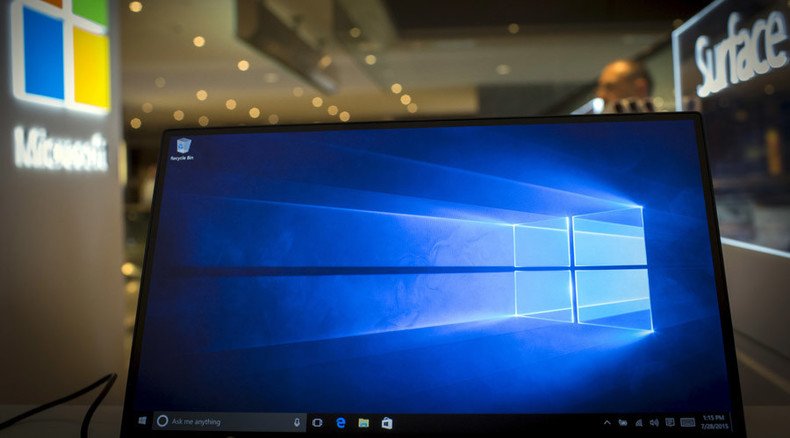‘All your emails are read, made copies of’

People using services like Gmail or Yahoo for emailing don’t realize that all their emails are read for advertising purposes and even deleted emails are kept as copies, says online privacy expert Katherine Albrecht from startmail.com.
Microsoft and a number of other American tech giants are in court up against the US government to protect customer’s digital privacy.
READ MORE: Microsoft Corporation v. United States of America
RT: How do you rate Microsoft and other tech giants' chances of holding back the US government from prying into our online cloud information?
Katherine Albrecht: It is going to remain to be seen what the Appeals Court decides, but the argument of the US federal government is that any American company based in the US with its headquarters in this country, that pays taxes in this country, for example, is obligated to turn over any data, no matter where they are stored on – anywhere on the globe. What Microsoft has been doing with its Outlook e-mail program – is they have been storing a lot of that e-mail on servers in places like Ireland, which is, in the case that is in dispute right now. The argument that the federal government is making: “Microsoft is an American company, therefore, it doesn’t matter where you’ve stored the e-mail of this particular individual, we have a search warrant, and therefore we demand that you turn this information over.”
RT: In trying to keep our private info confidential, just how secure is our personal data on cloud servers?
KA: I think that’s what’s at issue right now. The reality is - anytime you let the data out of your control, you are a subject to the laws of a number of countries. In this case Microsoft is arguing that the laws of Ireland should be applied to this data. And of course the US is saying that its laws are applied. Essentially when you have data in the cloud you don’t know where the company you’re doing business with is storing it.

I think this is going to be a big wakeup call for companies like Microsoft, Yahoo, Gmail - companies that manage e-mail particularly, because you’re dealing there with some of the most personal and private information possible. What this is going to do, unfortunately, just like Edward Snowden has told us, it costs billions of dollars, and it costs the American tech companies billions of dollars in business. People are flocking to other smaller companies out of the country, like StartMail. We’ve started a private encrypted e-mail program that’s based in the Netherlands. All of our servers are not on the cloud – they are 100 per cent owned, they are 100 per cent Dutch, and there is no cloud jurisdiction. Companies like StartMail, …also encrypt e-mails, so even if the e-mail would be intercepted or obtained it couldn’t be read with that encryption really easy. Edward Snowed has told us – that is the only way to protect your personal information from ‘Big Brother’. I think we’re going to see and increasing move offshore over the US...
READ MORE: Microsoft, Apple fight for data privacy as US govt seeks broader snooping powers
RT: What access should governments be allowed to have to ensure national security or tackle other crimes?
KA: One of the problems – when you’re talking about e-mail, we know because of the PRISM program that Snowden revealed that there has been a tremendous overreach on the part of the American government – that is one of the things that people in the States are extremely concerned about – that it’s not just about: “Let’s find the terrorists who we absolutely know for a fact is the person we’re looking for,” but in many cases it is really just anybody who is mentioning a key word that they don’t like, anyone who has political views that are unpopular – could be subjected to this kind of monitoring, and could have their e-mail intercepted.
What people don’t realize is when you use a company like Gmail or Yahoo for your e-mail – they actually do make copies, even if you delete your e-mail, they make a copy and they read all of your e-mails for advertising purposes. The databases that they’ve created have become tempting targets for not only the US government, but for the Chinese government who go after dissidents in many countries. So I think increasingly you’re going to find people moving to smaller e-mail programs, offshore e-mail programs, in particularly encryption like we offer with StartMail.
The statements, views and opinions expressed in this column are solely those of the author and do not necessarily represent those of RT.












